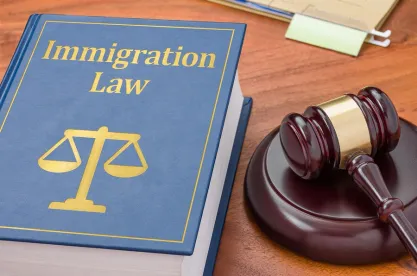The Biden Administration took office on January 20, 2021. Many executive orders have been executed since that date, some of which directly change the manner of handling immigration matters. However, the U.S. and the world are still dealing with the global pandemic and this directly affects submissions, filings, and consular appointments. This update provides a list of the latest updates to U.S. visas and immigration matters, as well as what we forecast for the months to come.
-
Immigrant Visa Ban: The Immigrant Visa Ban that was imposed last year was revoked on February 24, 2021. Now employment and family based immigrant visas can again be issued by the U.S. Consulates. See: A Proclamation on Revoking Proclamation 10014 | The White House
-
Entry to the U.S. via a Land Port of Entry from Mexico and Canada: The entry via land ports remains restricted to essential travel, those on work visas, U.S. citizens, U.S. permanent residents, and a few other limited exceptions. The entry restrictions are temporary in nature and as of now are expected to remain in effect through March 21, 2021. The date has been postponed several times and it is unknown if it will again be postponed. See: https://help.cbp.gov/s/article/Article-1694?language=en_US
-
Air Travel from Mexico and Canada into the U.S.: Currently there are no limits to air travel from Mexico and Canada.
-
Covid Travel Ban Restrictions: Any travel from Brazil, China, U.K., Ireland, Schengen Countries, and Iran is subject to a National Interest Exception (NIE) waiver from the U.S. Consulate prior to traveling to the U.S.
-
Negative Covid Test: All inbound passengers are required to obtain a negative Covid test within 72 hours prior to boarding the flight. This includes air travel from Mexico and Canada.
-
Local Quarantine Rules in the U.S.: All travelers must also research local travel rules upon arrival in the U.S. For example New York City and San Francisco have additional quarantine rules upon arrival.
-
Visa Stamping Ban: The Visa Stamping Ban that was imposed through an executive order from the prior administration for H-1B, L-1, J-1, and H-2B remains in effect. This ban expires on March 31, 2021. The Biden administration is not expected to extend this ban. This ban prevents the U.S. Consulates from issuing new visas in this category. This ban has prevented many executives and highly skilled workers from being able to enter the U.S.
-
Travel from the Middle East: The U.S. has canceled the blanket travel ban from select countries in the Middle East.
-
H-1B Lottery: The selection criteria will be the same as last year. The lottery starts on March 9, 2021 and goes to March 31, 2021. Winners will be announced on March 31 and then the employer has until June 30, 2021 to file the H-1B petition.
-
H-1B Adjudications at USCIS: The H-1B Adjudications at the United States Citizenship and Immigration Services (“USCIS”) are expected to return to 2016 standards, with deference given to prior adjudications, acceptance of multiple educational pathways to an H-1B occupation, etc.
-
USCIS Operational Efficiency: Expected to be a priority going forward. The Administration is expected to ensure that USCIS operates at an efficient pace so that the backlogs of prior years are not repeated.
-
DACA: The Deferred Action for Childhood Arrivals (“DACA”) has been reaffirmed for both existing DACA recipients and new applicants.
-
Asylum: The U.S. will again provide opportunities for applicants to apply and have a credible fear interview at the border. If they pass the credible fear interview, they will be allowed into the U.S. to await for their full asylum merits hearing before an Immigration Judge.
-
Comprehensive Immigration Reform: Under the new Administrations some sort of immigration legislation is expected. Such new provisions are expected to address both labor market and humanitarian needs. The Administration announced a draft plan on February 18, 2021.
E-2 Investor Visas: In recent months Mexican investors have shown an increased interest in the E-2 non-immigrant visa. As the pandemic slowly subsides, it is hoped that the U.S. Consulate in Ciudad Juarez will be able to increase their volume of E-2 reviews. The firm has a robust E-2 visa practice.
NAFTA TN Visas: The United States– Canada- Mexico Agreement (USCMA) replaced the NAFTA Agreement. The new USMCA went into effect on July 1, 2020. However, the TN occupational list and regulations remained the same. Therefore for select occupations, the TN visa continues to be a quick and efficient way for an U.S. employer to get a Mexican or Canadian citizen on the U.S. payroll. See: https://www.nafsa.org/regulatory-information/usmca-chapter-16-appendix-2-professionals




 />i
/>i
